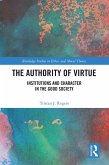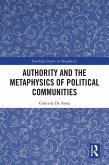This book clarifies the relation between religion and ethics, articulates principles governing religion in politics, and outlines a theory of civic virtue. It frames institutional principles to guide governmental policies toward religion and counterpart standards to guide individual citizens; and it defends an account of toleration that leavens the ethical framework both in individual nations and internationally.
Dieser Download kann aus rechtlichen Gründen nur mit Rechnungsadresse in A, B, BG, CY, CZ, D, DK, EW, E, FIN, F, GR, HR, H, IRL, I, LT, L, LR, M, NL, PL, P, R, S, SLO, SK ausgeliefert werden.
Hinweis: Dieser Artikel kann nur an eine deutsche Lieferadresse ausgeliefert werden.









